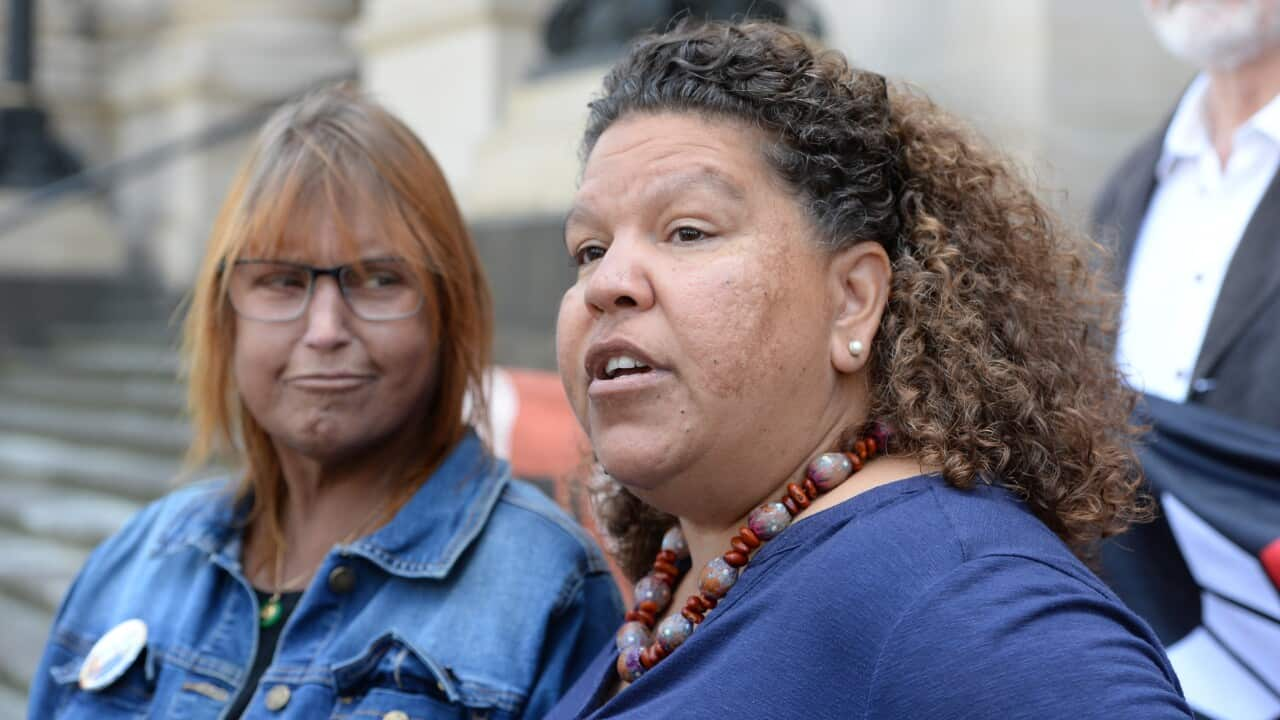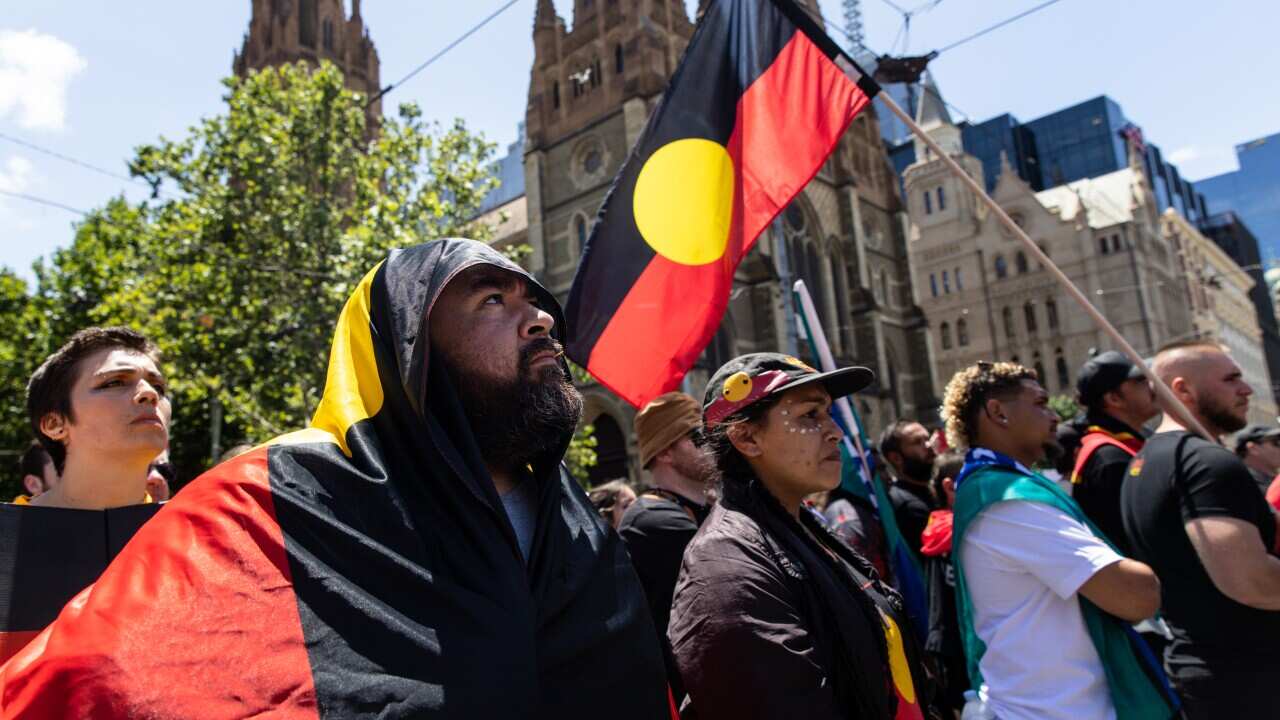Karina Lester knows the fallout nuclear weapons can cause.
Her father, the late Yami Lester, went blind as a young man after the British tested atomic weapons in Emu Field.
"The scars are still felt on our Country," said Ms Lester, a Yankunytjatjara Anangu woman from north-west South Australia.
"And the scars are still evident on our people."
A group of Australian atomic survivors and relatives visited Canberra on Wednesday to speak with government decision-makers about their experiences of the British nuclear testing program in WA and SA.
They are calling on Prime Minister Anthony Albanese to sign the Treaty on the Prohibition of Nuclear Weapons.
In 1953 the British initiated a program of nuclear testing in Australia at the Montebello Islands, off the coast of WA and in Emu Field in South Australia.
Two years later, the British government announced a larger site for the tests at Maralinga.
Ms Lester carries her family's stories about the impacts of the tests on her people.
"I had a grandmother of mine needing to dig a grave to bury her parents because soon after the radiation fallout, the elderly people started to suffer and die," she said.
"My father never saw me or my children.
"It's all because of a decision by governments of the day to say 'That is no man's country, go and test your bombs'.
"It's been a huge, painful journey for us but it's such an important story that needs to be told."

Australian atomic survivors and relatives are urging the signing of the Treaty on the Prohibition of Nuclear Weapons at Parliament House. Source: AAP / MICK TSIKAS/AAPIMAGE
"Signing the Treaty on the Prohibition of Nuclear Weapons is a significant step towards addressing the harm experienced by individuals and communities," she said.
In October 1953 when the British detonated the Totem I and II nuclear bombs at Emu Field, Yankunytjatjara, Antikarinya and Pitjantjatjara woman June Lennon was only a few months old.
Her family witnessed the tests and have suffered from ill-health since.
"The government didn't tell the truth about the nuclear testing program," she said.
"There were so many lies. They didn't tell people what they were doing."
International Campaign to Abolish Nuclear Weapons Australia director Gem Romuld said it was important for policy makers to hear stories firsthand.
"Nuclear survivors are experts on the devastating humanitarian impacts of nuclear weapons," she said.
"Australia's experience with nuclear weapons testing is a powerful motivation to join the nuclear weapon ban treaty."
The delegation will be in Canberra on Wednesday and Thursday to meet parliamentarians, including Foreign Minister Penny Wong and speak at an event hosted by the Parliamentary Friends of the Treaty on the Prohibition of Nuclear Weapons.













